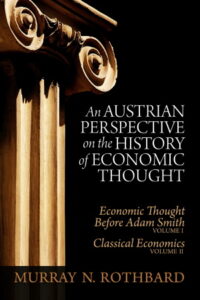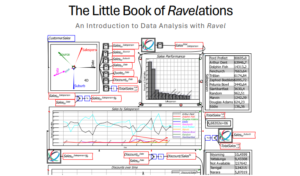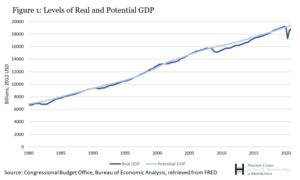Austrian economics and libertarianism are not the same things, but there does seem to be a very strong overlap.
This post is a summary of chapter 5 (Austrian Economics) of the book Contending Perspective in Economics by John T Harvey Ph.D. I’m summarizing this book because it’s such a great little book (151 pages, but packed full of insights).
Table of Contents
Origins of Austrian economics
Austrian economics was started, apparently unintentionally, by Carl Menger, in 1871.
While Menger was German, his ideas caught on with a few contemporaries, who were Austrian, hence the name.
These economic ideas later became popular with a group of American scholars at the University of Chicago.
Austrian economics is built on the ideas of:
- Method matters
- Everything starts with individuals
- Praxeology (more on this soon – partly because it’s a weird word, and partly because this was CORE to what they thought made Austrian economics not only vialbe, but superior)
- Subjectivitism
Method matters
Austrian economists believe that HOW you look at the world matters greatly and that a structured analytical approach is the indispensable first step in understanding economics.
Surprisingly (at least to me), this idea is not strongly emphasized in other economic schools of thought.
Austrians feel that sending an economist out to study the world without first teaching them logic and structured analysis is like buying a physicist an expensive electron microscope then not letting them read the manual on how to operate it.
Everything starts with the individual
Austrians believe that macroeconomics is not a thing in its own right, but rather macroeconomics are effects created by microeconomic causes. Everything is about the individual, and as such, the individual is the thing worthy of study.
Praxeology
Unless you’re studying economics in general and Austrian economics in particular, you’ve probably never seen this word before.
That’s because one of Menger’s Austrian contemporaries made it up. His name was Ludwig von Mises.
If you’ve never heard of him or learned much about Austrian economics in the past, you’re unlikely to have stumbled across this word.
It is their core analytical process and many Austrian economists consider it to be the key distinguishing feature of Austrian economics.
First, it contains the idea that every conscious action is intended to improve a person’s satisfaction. This is considered to be self-evident,. as any logical argument attempting to refute it necessarily demonstrates it.
Austrian economists strongly believe in structured logical arguments such as:
- Premise 1: All daughters talk back to their fathers.
- Premise 2: Jessica is a daughter.
- Conclusion: Jessica talks back to her father.
There are two concepts that are important to such logical arguments (in general – not specifically in relation to Austrian economics).
Validity is when the conclusion is logically derived from the premises. The argument above is valid.
Cogency is when the premises are reasonable. The argument above is NOT cogent, as premise 1 is not necessarily true.
To Austrian economics, cogency is KING.
If your premises are not rock-solid absolutely unequivocally correct (at least in their mind), you’re doing it wrong.
This leads them to the idea that praxeology is not just about well-structured arguments, it’s about revealing fundamental truths.
Subjectivitism
Their idea of subjectivism is that economic motivations are individual, personal, and therefore not observable.
As such, it is subjective.
Their concept of subjectivism seems closely tied to their focus on individualism.
It is also a key reason why they believe government planning can never be superior to market solutions.
The market
They believe in a concept called catallactics, which is their theory of exchange and how free-market systems reach exchange rate ratios and prices.
Markets interactions create human cooperation and social institutions, and it can never be vice versa.
They view markets as processes and they reject the neoclassical concept of equilibrium.
The business cycle
I love the consistent logic of their business cycle theory, even though I think they got important parts of it wrong.
But anyway…
Individuals prefer consumption now over deferred consumption.
To convince them to defer consumption, to save, banks pay them interest to NOT consume now.
That saving is then available for banks to lend to firms.
The resources available to firms at any point in time can either be used to produce consumer goods, or physical capital (which allows the production of more consumer goods later).
One determining factor in that split is the rate of interest banks charge firms to borrow money.
When the borrowing rate is higher, less physical capital gets produced, and when the borrowing rate is lower, more physical capital gets produced.
This exactly matches individual preferences, as indicated by their split between consumption and saving.
The business cycle swings up when banks can lend more because people save more, and swings down when banks can lend less because people save less.
And of course, if the government interferes in any way, they screw everything up and upset the natural order of things.
Methods
Because method is so central to Austrian economics it’s pretty much been covered, but to summarize:
Everything that matters happens at the level of the individual
When your premises are unequivocally true, your conclusions are not reasonable, they’re undisputed truth.
I said “when” as it seems some Austrian economists acknowledge this is often not possible, so you get as close as to “unequivocally true” as you can, within reasonable limits and constraints.
Views of human nature and justice
Austrian economists see social behavior as arising from individual behavior.
Societies do not have beliefs, values, morals, preferences, etc, individuals do, and this aggregate of our individual beliefs, values, morals, preferences, etc show up in our social structures and institutions.
Justice shows up as outcomes that reflect our collective preferences for our communities and each other.
And while Austrian economists believe in markets, they do not believe that markets are perfect and infallible, but rather there aren’t better tools around which to structure society.
Criticisms
Oh boy, here we go…
Marxists criticize them as they view capitalism as exploitative, whereas Austrian economists are so pro-markets there’s nothing to discuss.
Marxists tend to see Austrian economists as apologists for capitalism and see it as being more idealistic than scientific.
Institutionalists and post-Keynesians, and most Feminist economists believe that the inferior status of women, minorities, etc, is the result of social structure and forces and feel the Austrian idea that economic behavior is personal ignores this obvious truth.
Institutionalists and most Feminist economists argue that humans are social creatures by nature and the strong focus on the individual as THE agent of economic, pretty much everything, within Austrian economics misses the mark.
Post-Keynesians argue that when physical investment breaks down and causes extended periods of high unemployment, economies do not simply fix themselves through market forces.



